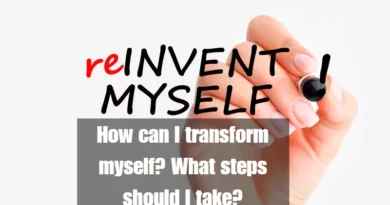Common Mistakes That Young People in Relationships Make
Takeaways
| Relationship Insights |
|---|
| Idealizing partners and setting unrealistic expectations can lead to disappointment and disillusionment in relationships. |
| Effective communication is crucial, but young people often fail to express their feelings and needs, creating misunderstandings and resentment. |
| Losing individuality by becoming overly dependent on the relationship can hinder personal growth and lead to imbalance. |
| Rushing into commitments without fully understanding compatibility can result in unstable and unsatisfying relationships. |
| Neglecting self-care and failing to establish boundaries can cause resentment, burnout, and loss of personal identity. |
| Healthy relationships thrive on open communication, mutual respect, personal growth, and a balanced focus on individuality and togetherness. |
Introduction
Navigating relationships can be tricky, especially for young people just starting to explore the complexities of romantic connections. While every individual and relationship is unique, there are inevitable common mistakes that young people tend to make. Understanding these pitfalls can help avoid unnecessary heartache and foster healthier, more fulfilling relationships. This article will explore some of the typical mistakes young people make in relationships and provide insights into overcoming them.
The Allure of Idealization
A. Unrealistic Expectations Can Lead to Disappointment
One common mistake young people often make is idealizing their partners or relationships. In the excitement of a new romance, it’s easy to project all our hopes, dreams, and desires onto the other person. We imagine them as perfect beings who will fulfill our every need and desire. However, this idealization shatters bound-to-be-set unrealistic expectations. Disappointment and disillusionment can follow when our partners’ inevitable flaws and imperfections become apparent.
B. Embrace Reality and Accept Imperfections
To avoid this mistake, it’s crucial to remember that no one is perfect. Relationships require acceptance of each other’s flaws and imperfections. It’s essential to see your partner as a whole person, with their strengths and weaknesses. You can foster a more genuine and lasting connection by embracing reality and appreciating your partner for who they are.
Lack of Effective Communication
A. Failure to Express Feelings and Needs
Effective communication forms the bedrock of a thriving and nourishing relationship. However, young people often struggle with expressing their feelings and needs effectively. Fear of rejection, judgment, or conflict can lead to bottling up emotions and unmet expectations. This lack of communication can create misunderstandings and resentment, eroding the relationship.
B. Open Up and Communicate Freely
Developing open and honest communication with your partner is crucial to avoid this mistake. Share your thoughts, feelings, and desires openly and respectfully. Create a safe space where you can express yourselves without fear of judgment. Effective communication builds trust, deepens emotional intimacy, and healthily resolves conflict.
Neglecting Individual Growth and Independence
A. Overdependence on the Relationship
Young people often make the mistake of losing their sense of self in a relationship. They become overly reliant on their partner for happiness, validation, and identity. This can lead to neglecting personal goals, interests, and individual growth.
B. Foster Personal Growth and Independence
To avoid this mistake, it’s essential to maintain a sense of individuality within a relationship. Nurture your passions, dreams, and aspirations. Remember that a healthy relationship should enhance, not hinder, personal growth. Encourage your partner to pursue their interests as well. Maintaining a balance between togetherness and individuality can foster a stronger foundation for your relationship.
Rushing Into Commitment
A. Moving Too Fast
Young people often dive headfirst into commitments without taking the time to get to know their partner honestly. The excitement of a new relationship can lead to rushing essential milestones such as moving in together, getting engaged, or even getting married. However, this haste can overlook essential compatibility factors, resulting in unfulfilling or unsustainable relationships.
B. Take Time to Build a Solid Foundation
It’s essential to allow the relationship to evolve and grow to avoid this mistake naturally. Take the time to build a solid foundation of trust, emotional connection, and shared values. Don’t be afraid to slow down and get to know your partner before making long-term commitments. Patience and a gradual progression can lead to more stable and satisfying relationships.
Neglecting Self-Care and Boundaries
A. Putting the Relationship Above Everything Else
Young people often make the mistake of neglecting their well-being and boundaries for the sake of the relationship. They sacrifice personal time, hobbies, and friendships or compromise their values to accommodate their partner’s needs. This imbalance can lead to resentment, burnout, and a loss of individual identity.
B. Prioritize Self-Care and Set Healthy Boundaries
To avoid this mistake, it’s crucial to prioritize self-care and set healthy boundaries. Ensure that you care for your physical, emotional, and mental well-being. Maintain connections with friends and family outside of the relationship. Set boundaries that respect your values, needs, and personal space. Remember that a healthy relationship should complement and support your growth, not hinder it.
1. Embrace “Me Time”
Engaging in self-care activities is essential for maintaining a healthy sense of self and nurturing your well-being. Take time to indulge in activities that bring you joy and relaxation. Whether reading a book, practicing a hobby, or simply taking a long walk in nature, prioritize activities that recharge and rejuvenate you. By prioritizing self-care, you enhance your happiness and bring a more fulfilled and balanced self to the relationship.
2. Establish Clear Boundaries
Setting boundaries is an integral part of maintaining a healthy relationship. Communicate your needs, limits, and expectations to your partner. Establishing boundaries that protect your well-being and ensure mutual respect is essential. This may include setting limits on personal space, defining acceptable behavior, and communicating your emotional needs. By setting clear boundaries, you create a framework that fosters respect, trust, and understanding in the relationship.
3. Communicate Openly
Open and honest communication is vital regarding self-care and boundaries in relationships. Express your emotions, worries, and desires to your partner. Let them know when you need time for yourself or when certain behaviors are crossing your boundaries. Effective communication allows both partners to understand and support each other’s needs. Creating a safe space where open dialogue can thrive, free from judgment or criticism, is essential.
4. Practice Self-Awareness
Awareness of your needs and boundaries is crucial in maintaining a healthy relationship. Take the time to reflect on your emotions, values, and priorities. Understand what is important to you and be willing to communicate and assert your needs when necessary. Self-awareness enables you to identify when you neglect your well-being or when others compromise your boundaries. By staying attuned to yourself, you can take proactive steps to prioritize self-care and reinforce healthy boundaries.
5. Seek Support
Don’t hesitate to seek assistance from reliable friends, close family members, or professional therapists. Sharing your experiences and seeking guidance can provide valuable insights and perspectives. Sometimes, an outside perspective can help shed light on areas where self-care and boundaries may be lacking. Surrounding yourself with a supportive network can provide the encouragement and guidance needed to prioritize self-care and establish healthy boundaries.
Remember, neglecting self-care and boundaries can harm your overall well-being and relationship. You can create a healthier and more fulfilling relationship dynamic by prioritizing self-care, setting clear boundaries, communicating openly, practicing self-awareness, and seeking support when needed. Your well-being matters, and nurturing it will ultimately contribute to the strength and happiness of your relationship.
FAQ
What’s a common mistake young people make in relationships?
One common mistake young people make in relationships is idealizing their partners or relationships, setting unrealistic expectations that can lead to disappointment.
How can effective communication be fostered in a relationship?
Creating a safe and open space in a relationship fosters effective communication, enabling both partners to express themselves honestly and respectfully.
Why is maintaining individual growth and independence in a relationship meaningful?
Maintaining individual growth and independence in a relationship is essential to prevent losing one’s sense of self and to ensure personal happiness and fulfillment.
Why is rushing into commitment a common mistake in young relationships?
Rushing into commitment in young relationships can overlook important compatibility factors, leading to unfulfilling or unsustainable relationships.
How does neglecting self-care and boundaries affect relationships?
Neglecting self-care and boundaries in relationships can lead to resentment, burnout, and a loss of individual identity.
Q6: What should young people prioritize in a relationship?
Young people should prioritize open communication, personal growth, mutual respect, and maintaining a healthy balance between togetherness and individuality.
Conclusion
Relationships can be a beautiful journey of growth and connection, but they require effort, understanding, and learning from mistakes. Young people often need to improve in relationships, such as idealizing their partners, lacking effective communication, neglecting individual growth, rushing into commitment, and neglecting self-care and boundaries. By being aware of these pitfalls and actively working to overcome them, young individuals can cultivate healthier and more fulfilling relationships. Remember, it’s essential to communicate openly, embrace imperfections, foster personal growth, take things reasonably, and prioritize self-care and boundaries. With these insights and a commitment to personal growth, young people can navigate relationships with greater wisdom and success.









